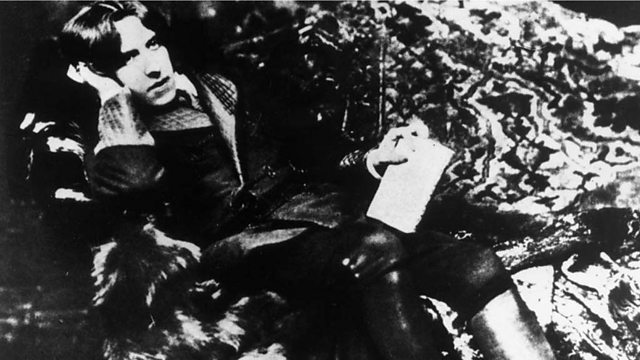Oscar Wilde
Melvyn Bragg discusses Oscar Wilde, the Aesthetes and his literary legacy. Was Wilde a reactionary - the last of the romantics - or was he the midwife to modernism?
Melvyn Bragg examines Oscar Wilde and the Aesthetes. In February 1895 Oscar Wilde was at the height of his powers, he was known on both sides of the Atlantic, he was feted in London society and celebrated in the West End where An Ideal Husband continued to play to packed houses as The Importance of Being Earnest opened to ecstatic reviews. βThe man who can dominate a London dinner table can dominate the worldβ he is reputed to have said, and he seemed on course to do just that. But in April that year he was arrested for the crime of βgross indecencyβ and his swift decent from omnipotence began; it ended five years later, when exiled and humiliated he died, famously βbeyond his meansβ, in a Paris hotel.Wildeβs reputation spent a long time in the wilderness but just over a century after his death his stock is higher than ever before. Now that his rehabilitation seems complete how should we understand his legacy? Was Wilde a reactionary - the last of the romantics - or was he the midwife to modernism? Was there a coherent philosophy behind those beguiling epigrams or was there little more to aestheticism than dressing up and showing off? With Valentine Cunningham, Professor of English Language and Literature at Oxford University, Regenia Gagnier, Professor of English at the University of Exeter and Neil Sammells, Dean of Humanities at Bath Spa University and author of Wilde Style.
Last on
Broadcasts
- Thu 6 Dec 2001 09:02ΒιΆΉΤΌΕΔ Radio 4
- Thu 6 Dec 2001 21:30ΒιΆΉΤΌΕΔ Radio 4
Featured in...
![]()
Victorian—In Our Time
Browse the Victorian era within the In Our Time archive.
![]()
19th Century—In Our Time
Browse the 19th Century era within the In Our Time archive.
In Our Time podcasts
Download programmes from the huge In Our Time archive.
The In Our Time Listeners' Top 10
If youβre new to In Our Time, this is a good place to start.
Arts and Ideas podcast
Download the best of Radio 3's Free Thinking programme.
Podcast
-
![]()
In Our Time
Melvyn Bragg and guests discuss the ideas, people and events that have shaped our world.



